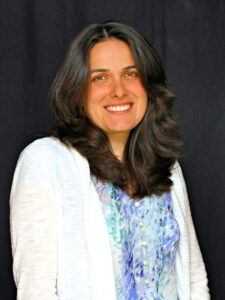VISE Spring Seminar – Summer L. Gibbs, PhD
VISE Spring Seminar
to be led by
Summer L. Gibbs, PhD
Associate Professor
Biomedical Engineering
Oregon Health & Science University

Date: March 25, 2021
Time: 12:15 p.m. Room Admittance, 12:25 p.m. start
Zoom: Details will be sent morning of…
Title:
“Can Fluorescence Guided Surgery Improve Patient Outcomes?”
Abstract:
Surgery has a prominent role in clinical medicine with over 300 million surgeries performed annually worldwide. The ultimate goal of surgery is to repair damaged or remove diseased tissues, while minimizing comorbidities by preserving vital structures such as nerves and blood vessels. Even as surgical techniques and tools have substantially advanced, with high resolution preoperative imaging and minimally invasive surgical techniques becoming routine, surgeons still rely mainly on the basic tools of white light visualization and palpation for guidance during surgery, leaving incomplete cancer resection rates high and comorbidities like nerve damage as major problems. Fluorescence-guided surgery (FGS) has the potential to revolutionize surgery by enhancing visualization of specific tissues intraoperatively. Using optical imaging of targeted fluorescent probes, FGS offers sensitive, real-time, wide-field imaging using compact imaging systems that are easily integrated into the operating room. A number of FGS systems are clinically available, but only a handful of contrast agents have been FDA approved. Numerous preclinical studies of novel contrast agents have shown promise for improved surgical outcomes. However, moving novel agents from bench to bedside continues to challenge the field of FGS. Our group is working towards clinical translation of novel probes to highlight nerve tissue to aid in sparing nerves during a variety of procedures, which would significantly reduce morbidity to patients.
Bio:
Dr. Gibbs received her undergraduate degree in Biochemistry from Whitworth College. She went on to earn her Ph.D. in Biomedical Engineering from Dartmouth College under the mentorship of Dr. Brian Pogue. She completed her postdoctoral training in Molecular Imaging at Beth Israel Deaconess Medical Center and the Harvard Medical School in Dr. John Frangioni’s laboratory. She started her own laboratory at Oregon Health and Science University where she is currently at Associate Professor. Her group develops novel fluorescence imaging technology with a focus on cancer imaging. She is particularly interested in fluorescence guided surgery and clinical translation of novel contrast agents to improve surgical outcomes.

